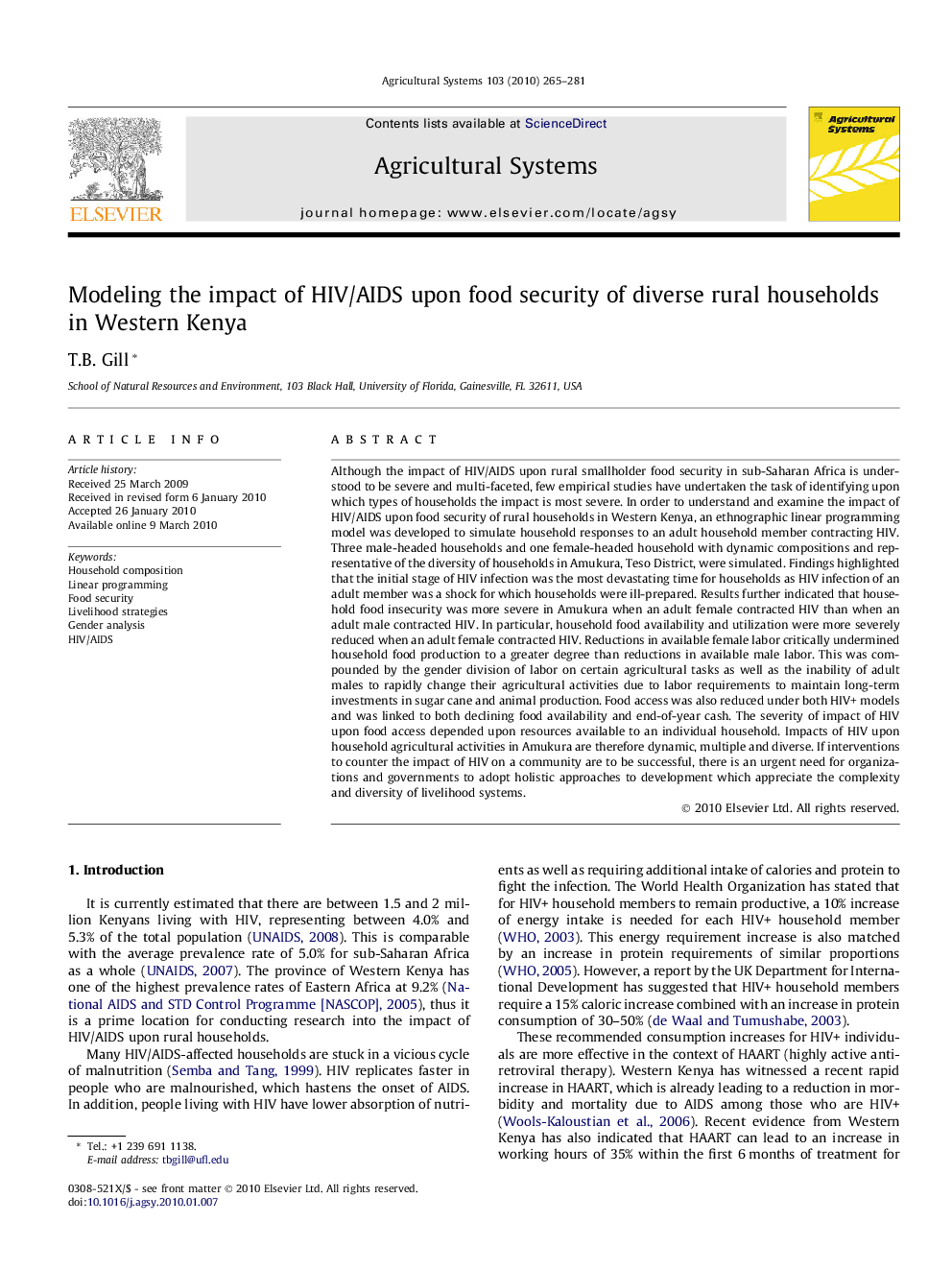| Article ID | Journal | Published Year | Pages | File Type |
|---|---|---|---|---|
| 4491718 | Agricultural Systems | 2010 | 17 Pages |
Although the impact of HIV/AIDS upon rural smallholder food security in sub-Saharan Africa is understood to be severe and multi-faceted, few empirical studies have undertaken the task of identifying upon which types of households the impact is most severe. In order to understand and examine the impact of HIV/AIDS upon food security of rural households in Western Kenya, an ethnographic linear programming model was developed to simulate household responses to an adult household member contracting HIV. Three male-headed households and one female-headed household with dynamic compositions and representative of the diversity of households in Amukura, Teso District, were simulated. Findings highlighted that the initial stage of HIV infection was the most devastating time for households as HIV infection of an adult member was a shock for which households were ill-prepared. Results further indicated that household food insecurity was more severe in Amukura when an adult female contracted HIV than when an adult male contracted HIV. In particular, household food availability and utilization were more severely reduced when an adult female contracted HIV. Reductions in available female labor critically undermined household food production to a greater degree than reductions in available male labor. This was compounded by the gender division of labor on certain agricultural tasks as well as the inability of adult males to rapidly change their agricultural activities due to labor requirements to maintain long-term investments in sugar cane and animal production. Food access was also reduced under both HIV+ models and was linked to both declining food availability and end-of-year cash. The severity of impact of HIV upon food access depended upon resources available to an individual household. Impacts of HIV upon household agricultural activities in Amukura are therefore dynamic, multiple and diverse. If interventions to counter the impact of HIV on a community are to be successful, there is an urgent need for organizations and governments to adopt holistic approaches to development which appreciate the complexity and diversity of livelihood systems.
